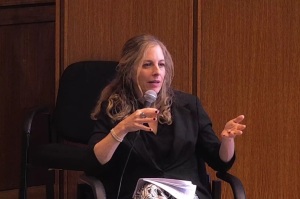Ill. Judge Allows State to Break Contracts With Catholic Charities
An Illinois judge gave the state Department of Children and Family Services the go-ahead to begin canceling contracts with Catholic Charities. An officer of the long-standing ministry said it would continue to offer adoption services on its own terms.
Sangamon County Circuit Court Judge John Schmidt denied Catholic Charities' request to prevent the DCFS from canceling its foster care and adoption contracts.
The decision, made Sept. 26, puts the adoptive ministries of several dioceses at risk. Catholics Charities agencies in the dioceses of Belleville, Joliet, Peoria and Springfield currently provide placement services for 2,000 children. The state contracts, collectively worth $30 million, make up 80 percent of its foster care budget.
However, the state of Illinois has chosen, since the June 1 enactment of the Religious Freedom Protection and Civil Unions Act, to direct the money and contracts elsewhere because Catholic Charities refuses to place children with homosexual or unmarried couples.
The act allows heterosexual, gay and lesbian couples to be joined in civil unions and adopt or foster a child.
The Illinois attorney general's office issued a warning letter in March, stating that it had "received notice that Catholic Charities ... discriminates against Illinois citizens based on race, marital status and sexual orientation" in the provision of foster care and adoption services. Later, the DCFS announced it would drop its contracts with the Catholic ministry. Gov. Pat Quinn stood by DCFS' decision, stating that the state's position on the matter is, "We're not going back."
Catholic Charities of Illinois has placed thousands of children in homes over the past 50 years.
Despite the warnings, Robert Gilligan, executive director of the Catholic Conference of Illinois, told PBS' Religion & Ethics NewsWeekly that it plans to continue its mission of finding homeless children a loving, stable family.
Adoption and foster care, Gilligan said, is "part of our mission, it's part of our teachings, it's part of what we do as Catholics."
However, he explained that the dioceses will not compromise the belief that heterosexual marriage – not same-sex unions or cohabitation – provides the best structure for children.
"We have to do it in honoring our own tenets and our faith that call us to do this," Gilligan stated. "If we can't do it in a faith-filled mission, then we can't do it using public money. We'll do it on our own terms."
The Thomas More Society, a pro-life legal firm, represents Catholic Charities in this matter. The group sued the state's attorney general and DCFS, claiming that Catholic Charities informed both of the offices of its religious beliefs prior to the June 1 enactment of the civil unions law.
Peter Breen, executive director of the Thomas More Society, also argued that Catholic Charities is entitled to an exemption for religious practice under the Religious Freedom Protection and Civil Unions Act.
State Deputy Communications Director Kendall Marlowe argued, "Every faith-based organization in the state of Illinois has the full capacity and the full right to pursue their religious freedom. The question is, what happens when you are paid with taxpayers' money, state money, to provide state services? And in those cases we have to insist that those agencies comply with Illinois law."
The lawsuit was unsuccessful.
However, the Thomas More Society has not given up yet. It is working to secure a stay from the Illinois Appellate court to retain Judge Schmidt's ruling and allow Catholic Charities to continue its services with the state.



























